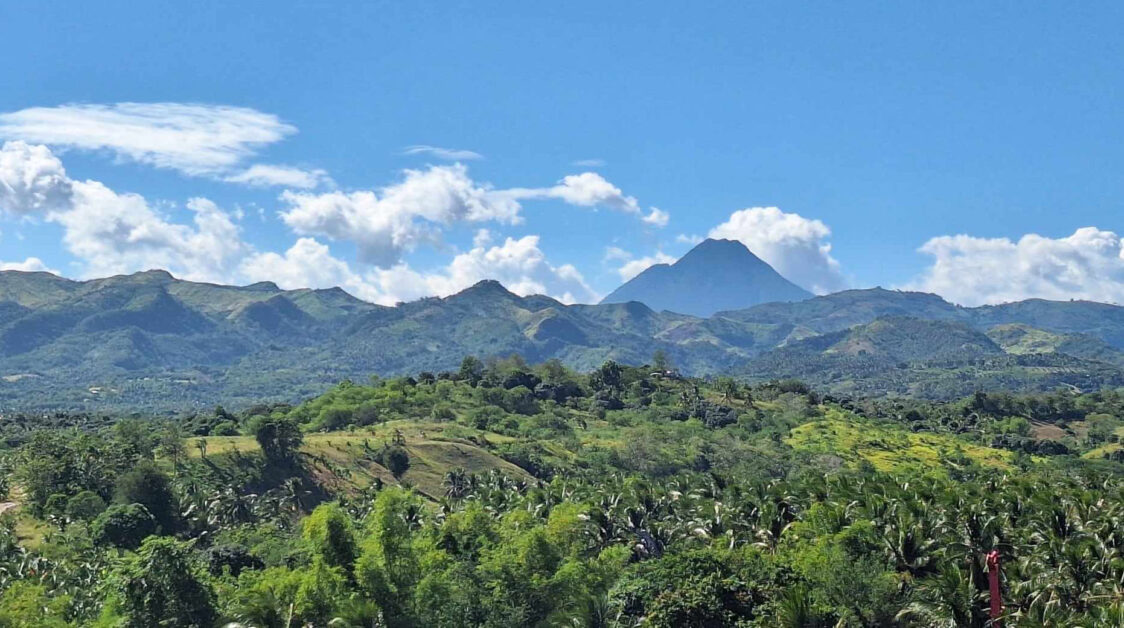 The prevailing intense heat has turned farmlands in Sarangani empty dry as many farmers deferred planting crops until the rains come. MindaNews photo by ROMMEL REBOLLIDO
The prevailing intense heat has turned farmlands in Sarangani empty dry as many farmers deferred planting crops until the rains come. MindaNews photo by ROMMEL REBOLLIDO
GENERAL SANTOS CITY (MindaNews / 02 April) – Reports of heat-induced nose-bleeding and headache among students here have prompted education officials to ask the city government to suspend classroom-based learnings amid the prevailing unusually hot weather.
The Department of Education (DepEd) in General Santos said based on reports by various schools, at least 2,557 students suffered severe headaches induced by the high heat index that the city has been experiencing the past several days.
DepEd General Santos superintendent Isagani Dela Cruz said there were 291 students who suffered from nose bleeding due to the hot weather.
The situation prompted City Mayor Lorelie Pacquiao to issue Executive Order No. 19, ordering the suspension of classes in all levels in both public and private schools in General Santos from April 2 to April 5.
The order shall be in effect “unless otherwise extended or lifted earlier,” Pacquiao said
Responding to the order, several schools in the city, like the Mindanao State University (MSU), issued directives informing students and teachers that classes will continue but via online.
According to the weather advisory issued at 4:30 p.m. on Tuesday by the Philippine Atmospheric, Geophysical and Astronomical Services Administration (Pagasa), the city’s temperature hit a high of 35 degrees Celsius.
Norman Ralph Isla, MSU General Santos campus secretary, said all classes in the university shall be done synchronous and/or asynchronous, and to be monitored by heads of the various academic units.
In a similar move, Sarangani Governor Rogelio Pacquiao also ordered the suspension of face-to-face classes in all school levels in his province.
The class suspension begins on Wednesday, 03 April, and to last until 19 April “until otherwise lifted or extended.”
In South Cotabato, the mayors of Banga and Tantangan towns have also ordered the suspension of afternoon face-to-face classes to reduce the potential risk to students of the extreme heat.
Tantangan Mayor Timee Torres-Gonzales said they have agreed with DepEd to implement blended alternative learning modalities from April 2 until April 15. Gonzales said DepEd gave assurance that the scheme will not delay the learning schedule of students.
In Banga town, Mayor Evangeline Palencia said there will be no afternoon classes beginning April 2 to April 30 to mitigate the potential risk to health of students due to the prevailing extreme heat.
Losses in agriculture
Meanwhile, town officials in Alabel, Sarangani province have recommended to municipal legislators to declare their town in a state of calamity due to damages in agriculture caused by the prevailing dry conditions and soaring temperatures.
The Municipal Disaster Risk Management Council adopted a motion to reprogram a trust fund worth almost P4 million that will be used to help those that are affected by ongoing dry spell.
Meeting with agriculture and disaster management officials, Mayor Paul Salarda sought a comprehensive detailed accounting of the alleged “huge damages” to crops like corn, coconuts and bananas, as well as livestock and poultry in the municipality.
The Department of Agriculture (DA) said on a national scale, the El Niño phenomenon has damaged at least P1.31 billion worth of agricultural crops, poultry and livestock as of mid-March.
But the DA-Soccsksargen cannot yet ascertain the extent of possible damages pending the completion of reports on the effects of El Nino from local government units, said John Pascual, DA regional director.
He said that based on initial assessment, the dry spell being experienced in the region has not caused “so far any severe damage,” although they have set in place mitigating measures.
Soccsksargen, which straddles the provinces of South Cotabato, North Cotabato, Sultan Kudarat and Sarangani, and the cities of General Santos, Koronadal, Tacurong and Kidapawan, has been experiencing less rainfall and dry weather with intense heat, Pagasa said. (Rommel Rebollido / MindaNews)
